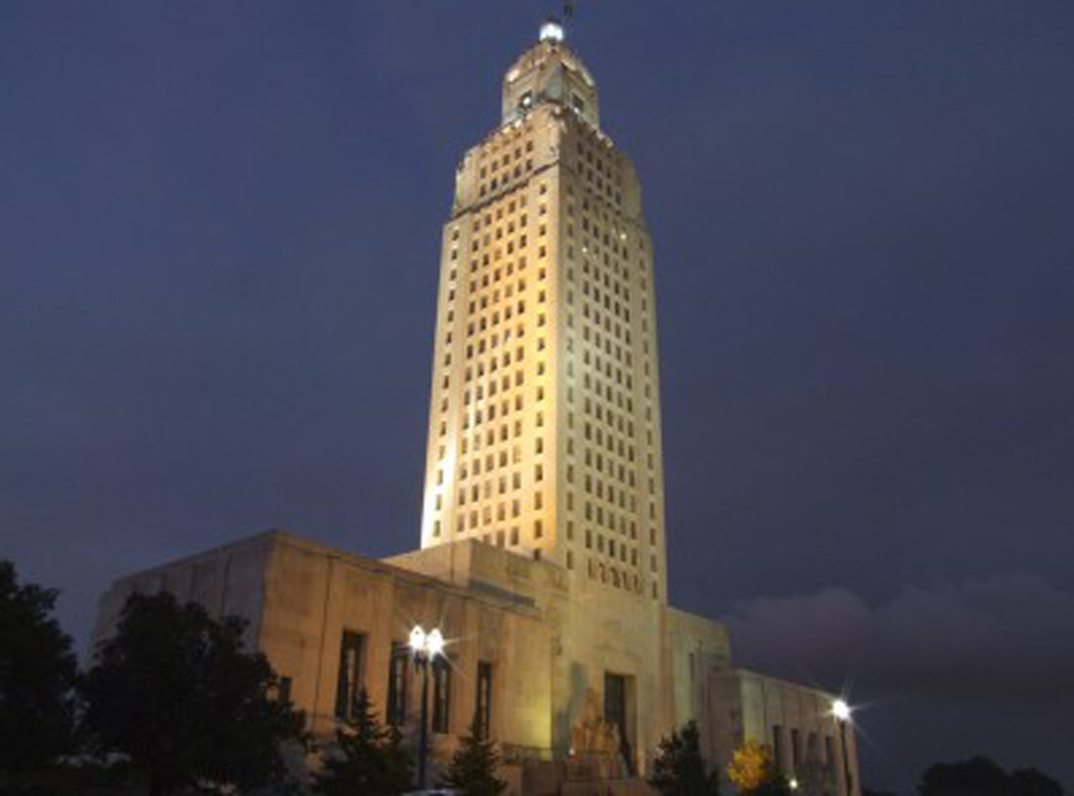BATON ROUGE — State leaders are rummaging around for ideas to stop the flow of red ink in Louisiana’s budget, with a more than $700 million gap to close by June in the state’s worst financial crunch in nearly 30 years.
Gov. John Bel Edwards is expected to start unveiling his “menu of options” within the next week, ahead of a planned mid-February special legislative session to address this year’s shortfall and to start chipping away at a gap estimated to reach up to $1.9 billion next year.
Ahead of any specifics from the Democratic governor, proposals are emerging around the Louisiana Capitol as lawmakers returned to meetings with the start of their new term.
Among the ideas being discussed: sales tax hikes, a state property tax, employee furloughs, tax break removals, a revisiting of the Stelly Plan income tax provisions and cuts to the money sent to local government.
Cuts to state agencies are expected, both for the $25 billion budget that ends June 30 and the spending plan being crafted for next year. But tax increases also seem likely.
“Most people understand cutting anywhere from $1.5 billion to almost $2 billion out of a state general fund is likely not feasible,” said new House Speaker Taylor Barras, R-New Iberia. “To raise that much in revenue is probably as far off on the horizon.”
“Knowing the basic conservativeness of this body, I think it will be a blending of the two is my best guess,” he said.
The House got a crash course in state finances over two days of briefings. The picture was grim, as noted by Rep. Greg Miller, R-Norco.
“Just turning down the thermostat isn’t going to get us there” to balance the budget, he said.
Hefty state income tax cuts in 2007 and 2008, combined with the national recession, ballooning price tags for tax break programs and plummeting oil prices have stripped billions from Louisiana’s treasury in recent years.
Seeking to maintain a no-tax-increase pledge, former Gov. Bobby Jindal cut spending and cobbled together budgets with money from savings accounts, property sales and other one-time fixes. Many of those accounts are now drained, and the budget gaps remain.
“We are not facing a belt-tightening exercise. At the core of all of our state’s challenges is a structural budget problem,” Edwards told a gathering of business leaders Thursday.
“We have to negotiate shared sacrifice in order to bring about shared prosperity. It’s the right thing to do. And it’s the only thing to do if we don’t want to find ourselves back here next year and the year after and the year after that,” he said.
Crafting a fix will require the Democratic governor to work with a majority Republican Legislature on proposals that in some instances require a two-thirds vote to pass. That’s not a simple task.
Outside groups, economists and others have offered a litany of proposals for consideration to generate new dollars for the budget.
One idea being widely discussed at the Capitol involves a re-enactment of provisions of the Stelly Plan, a 2002 tax rewrite that eliminated sales taxes on groceries and residential utilities in exchange for increased income taxes on middle- and upper-income earners.
The tax increases were rolled back in 2007 and 2008, and the sales taxes were never put back in place by lawmakers. Estimates are that Louisiana has lost $800 million to $1 billion in yearly revenue from undoing the Stelly Plan.
The governor and lawmakers also are looking at scrapping laws that steer millions of dollars to earmarked items and away from general government. The treasurer’s office estimates those “statutory dedications” that aren’t locked into the state constitution or tied to fees for specific services total at least $440 million a year.
At a recent budget forum held by the Louisiana Association of Business and Industry, Mark Drennen, the top budget adviser to former Gov. Mike Foster, said the state needs to stop sending $250 million a year to local government. Instead, he said the state should give parish and municipal government agencies more freedom to raise their own dollars.
“When you’re the only state that does something a certain way and nobody else does it, probably an indication that it’s not a good idea and that is how we fund local government,” Drennen said.





